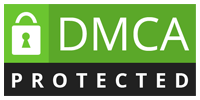Cybersecurity has long progressed since it was established, now we can see many of its branches of expertise and profession. One of these careers is a licensed penetration tester.
If you are or want to be a licensed penetration tester, you should be able to perform your task efficiently. You can do that by continuing to challenge yourself and by proving that you can master the skills or get the credentials of becoming an advanced penetration tester.
The qualification for this job will require you to show a methodical, measurable, and repeatable approach to successful penetration testing.
Here is the experts’ breakdown of the things that you should know about the advanced licensed penetration tester.
Licensed Penetration Tester (Master/Advanced)
Credentialing
Licensed penetration tester – master, is not a course or training program but a credential that can only be attained through the certification exam.
The series of tests will consist of 3 levels, each with 3 challenges, that need to be accomplished within 6 hours. A total of 9 tests within 18 hours.
Challenges will be based on real-time situations with a high level of difficulties.
Created by Experts
The tests are designed by experts based on the latest industry trends and real-life situations. By doing this, students can experience and provide results that are consistent and realistic.
As the level increases, so does the difficulty of the challenge.
Industry-Standard Methods
The challenge lies in real-life networks with firewalls, multiple network segments, access control policies, demilitarized zones, different operating systems, and web technologies. Relevant skills are all put to test.
You will be using different types of penetration tools such as PTES, PCI, OSSTMM, DSS, and NIST800-115.
Writing Reports
Having the technical skills is incomplete when you can’t make a detailed report that the upper management can understand.
You should be able to convince the top management of the need for the test, overall assessment, and future mitigating plans.
To become a master penetration tester, you should also develop your writing skills. This includes your presentation and verbal skills. Most people that are not IT professionals will have difficulties understanding the technicality of the work and should be explained in layman’s term.
Certification Validity
When you pass all the needed requirements to be a licensed penetration tester. You will be registered and certified.
Your certificate will initially be valid for 2 years, after that you can retain your certificate through annual renewal.
No Criteria for Eligibility
The cybersecurity industry believes that if you have the passion and commitment to learning this course then you should be allowed to, regardless of your prior courses and work experience.
The licensed penetration tester course has no criteria and is open to everyone.
However, it can not be offered to applicants below 18 years old. This is due to minor age policies.
Skill Recognition
When you are already a licensed penetration tester. You can easily find and apply for jobs with the confidence of getting it based on your training and potential.
Most employers or organizations will prioritize hiring licensed penetration testers over penetration testers. Your certification will assure your employer that you have the skills and competence.
This makes you advantageous over other applicants.
Career Opportunity
Now that you have learned and understood the life and work of a licensed penetration tester, then challenge yourself to pursue a career. Our firm Reliable Cyber Solutions, LLC., offers cybersecurity online courses and certifications that could help you start your career path. Visit our website now at RCyberSolutions.






